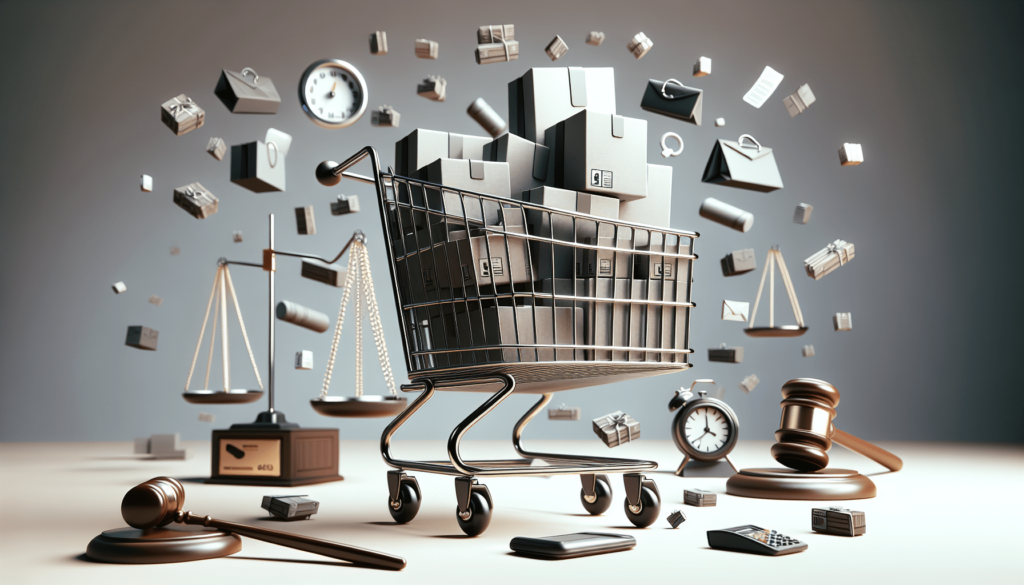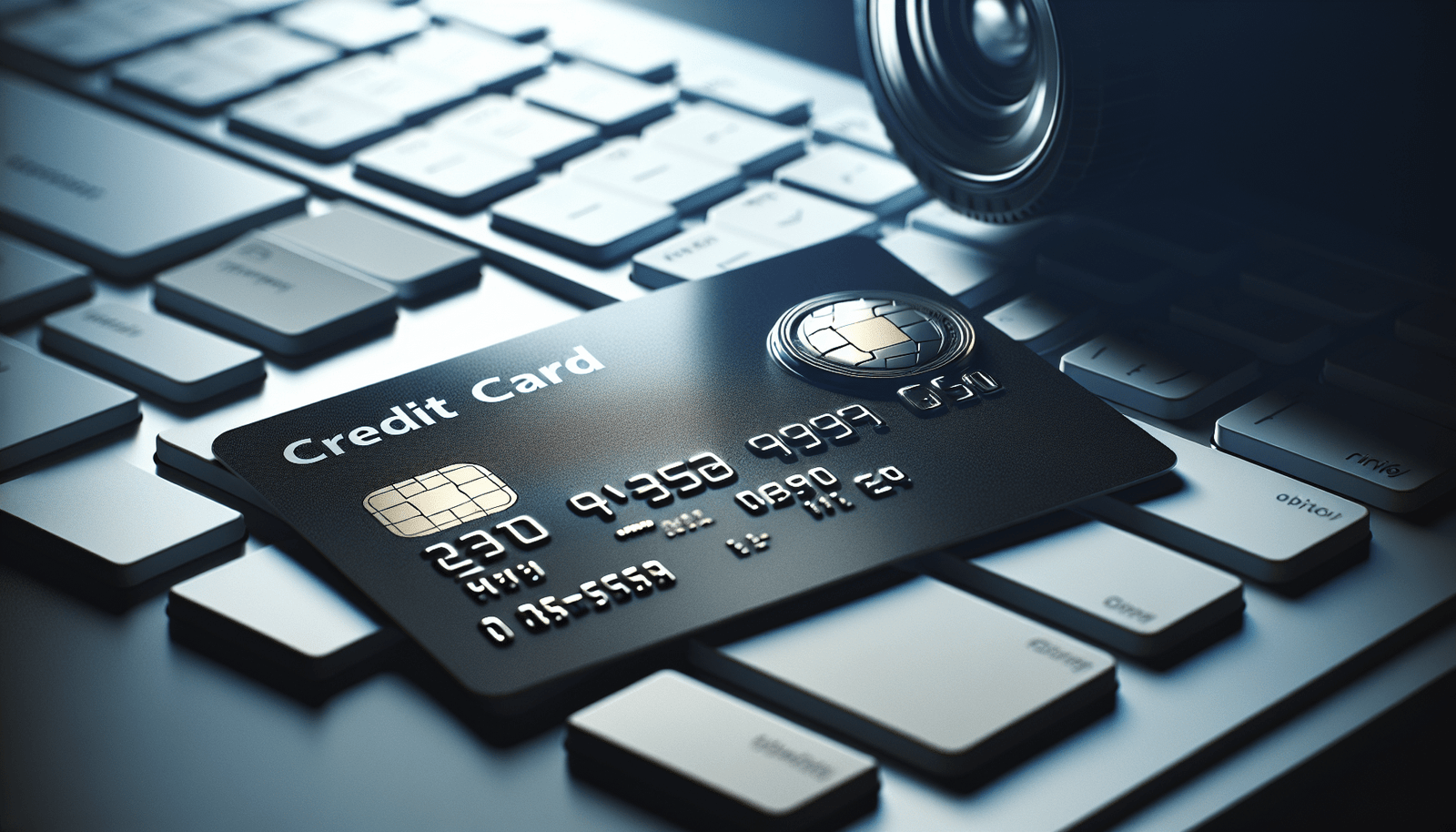Hey there! I recently dove into the world of dropshipping, and let me tell you, it’s a mixed bag of convenience and legal landmines. In my latest read, “Ecommerce Liability for Dropshipping: What You Should Know,” I unpacked all the critical details every aspiring dropshipper must understand. From product liability and consumer protection laws to ensuring compliance with online marketplace regulations, it covers all bases. The article’s not just a dry list of legal jargon—it’s engaging, informative, and sprinkled with humor, making the complex world of ecommerce liability a tad more digestible. If you’re looking to venture into dropshipping or bolster your existing online business with solid legal know-how, this read is a must. Have you ever wondered what exactly happens behind the scenes when you order something from an online store, only for it to be shipped directly from a different company? This intriguing process is called dropshipping, and while it might seem like an effortless way to run an eCommerce business, there are quite a few legal intricacies involved. So, buckle up and let’s dive into the world of eCommerce liability for dropshipping.
Ecommerce Liability for Dropshipping: What You Should Know

What is Dropshipping?
First things first, dropshipping is a retail fulfillment method where the store doesn’t keep the products it sells in stock. Instead, it purchases the item from a third party—usually a wholesaler or manufacturer—and has it shipped directly to the customer.
It’s like being a middleman, but instead of awkwardly standing between two people at a cocktail party, you’re facilitating transactions over the internet. Easy, right? Well, not quite. While dropshipping seems hands-off, there are various liabilities that come into play.
The Good, The Bad, and The Legally Complicated
If you’re thinking about starting a dropshipping business, you’re probably aware of its advantages: low overhead, no need for warehousing, and the ability to offer a wide range of products. But what about the downsides? What if a product arrives damaged or, heaven forbid, it never arrives at all? Who takes the fall?
You’ll want to know this before getting your feet wet, or worse, ending up in a courtroom.
Product Liability Insurance: Your Best Friend
One of the first things you’ll need is product liability insurance. Imagine this scenario: a customer buys a phone charger from your store. The charger malfunctions and sets their house on fire. Who’s held responsible?
In a perfect world, the answer would be not you. But in the real world, you could very well be responsible, which is why product liability insurance is crucial. This policy helps protect your business from claims related to product defects.
What It Covers
- Bodily Injury: If someone gets hurt using your product.
- Property Damage: If your product damages someone’s property.
- Legal Fees: Covers the cost of defending against claims.
Contracts With Suppliers
Ah, contracts. The fine print that makes most people’s eyes glaze over. Yet, it’s a necessary evil. When entering into an agreement with suppliers, it’s essential to lay out the terms and conditions clearly.
Among other things, these contracts should specify responsibility for defective products, shipping errors, and any other mishaps. Otherwise, you might find yourself twiddling your thumbs while your supplier ghostwrites a soap opera.
Key Contract Elements
- Quality Control: Standards for product quality.
- Shipping Standards: Deadlines and conditions.
- Indemnity Clauses: Protect you if the supplier fails in their obligations.
Customer Disputes: The Not-So-Fun Part
Ah, customer disputes. They can make running a dropshipping business a real test of your zen. Whether it’s because the product wasn’t delivered on time or it didn’t match the description, you’re the one who gets the grumpy emails.
Apart from the customer service headache, unresolved disputes can also lead to legal repercussions. The Federal Trade Commission (FTC) has regulations around how you need to handle customer complaints and refunds.
Tips for Managing Disputes
- Clear Communication: Always inform customers about delays or issues.
- Easy Refund Policies: Simplify the refund process to keep complaints at bay.
- Track Everything: Use reliable shipping partners that offer tracking.

Compliance with Online Store Regulations
Every country has its regulations, and it’s your responsibility to comply with them. These can range from consumer protection laws to state-specific regulations on sales tax.
If you’re based in the U.S., you’ll need to be particularly mindful of state tax regulations, as they can differ widely. Failure to comply can result in heavy fines and even the closure of your business.
Important Regulations
- Consumer Protection Laws: Ensuring product safety and accuracy in advertising.
- Tax Regulations: Collecting and remitting sales tax.
- Payment Security: Adhering to standards like PCI DSS (Payment Card Industry Data Security Standard).
Payment Processing Security Risks
Online transactions are the bread and butter of dropshipping, but they’re also a magnet for fraudsters. Payment processing security is non-negotiable. Ensuring that payment gateways are secure is crucial to protecting your business and your customers’ sensitive information.
Best Practices
- Two-Factor Authentication: Add an extra layer of security.
- PCI Compliance: Ensure your processor adheres to these standards.
- Regular Audits: Regularly check for vulnerabilities.
Emerging Tech Liability Concerns
With new technology come new risks. Dropshipping platforms often incorporate new tech like AI to manage inventory or blockchain for secure payments. These can be great for efficiency, but they also bring new liability concerns.
Examples
- AI Errors: If AI mismanages inventory, who is responsible for the financial losses?
- Blockchain Issues: While secure, blockchain transactions are irreversible. Once done, mistakes can’t be undone.
Social Media and Influencer Marketing: Proceed with Caution
Social media is a fantastic marketing tool, especially when you collaborate with influencers. But there are numerous regulations that you need to be aware of. The FTC requires that relationships between brands and influencers be disclosed. Failure to do so can result in hefty fines.
Disclosure Guidelines
- Clear Labels: Use “#ad” or “#sponsored” to make the nature of the relationship clear.
- Transparency: Ensure influencers understand the rules and comply with them.
Website Content and Accessibility
Your website is your storefront, and like any storefront, it needs to be legally compliant. This includes having a clear privacy policy, terms and conditions, and ensuring website accessibility, which is now a legal requirement in many countries.
Essential Website Features
- Privacy Policy: Clearly explain how customer data is used and protected.
- Terms and Conditions: Outline the rules users must agree to.
- Accessibility: Make your website usable for people with disabilities; tools like the Web Content Accessibility Guidelines (WCAG) can guide you here.
Data Breach Liability
In today’s digital age, data breaches are a major concern. Suppose hackers gain access to your customer data. The fallout can be disastrous, not just for your customers but for your reputation and finances.
Protecting Your Business
- Encryption: Ensure all data is encrypted.
- Regular Updates: Keep software and security measures up to date.
- Incident Response Plan: Have a plan in place to act swiftly in the event of a breach.
Legal Considerations Around Fake Reviews
Fake reviews can kill your business faster than you can say “trust issues.” Whether they’re overly positive puff pieces or nasty, unfounded critiques, fake reviews can lead to legal trouble.
Managing Reviews
- Verify Purchases: Only allow verified customers to leave reviews.
- Monitor Reviews: Regularly check for suspicious activity.
- Take Action: Don’t hesitate to report and remove fake reviews.
The Importance of Legal Counsel
When you’re operating in a complex, liability-ridden industry like dropshipping, legal counsel isn’t just a luxury—it’s a necessity. A good lawyer will help you navigate contracts, compliance issues, and any unexpected legal challenges that pop up. Think of them as your safety net, only less visible and more expensive.
What to Look for in Legal Counsel
- Specialization: Look for lawyers who specialize in eCommerce or business law.
- Experience: Make sure they have a good track record.
- Accessibility: They should be easily reachable for those spontaneous legal crises.
Final Thoughts
Embarking on the dropshipping adventure can be exhilarating, but it’s not without its mines. Proper preparation, understanding the legal landscape, and ensuring compliance can save you from potential pitfalls. Take it from me, an ounce of prevention is worth a pound of cure—or in dropshipping terms, an ounce of preparation is worth a ton of avoided lawsuits.
So there you have it, your comprehensive guide to the liabilities in the world of dropshipping. Stick to these guidelines, and who knows? You might just dodge those late-night, panic-induced lawyer calls!
Disclaimer: This article is intended for informational purposes only and should not be considered legal advice. Always consult with a qualified legal professional for specific matters.



